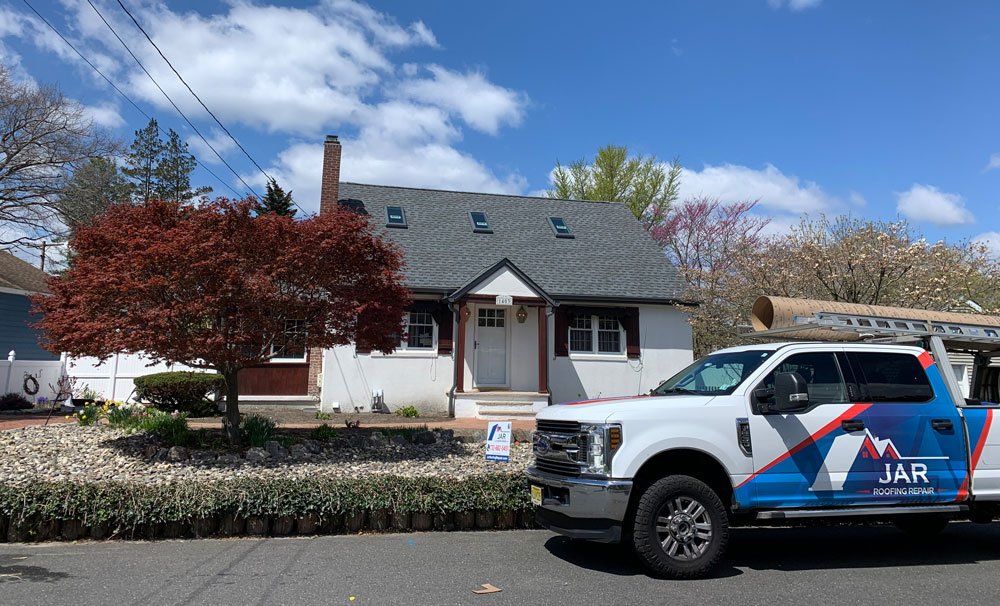Choosing the right roofing style for your residential home is a significant decision that can impact both aesthetics and functionality. With various roofing styles available, each offering unique benefits and drawbacks, it’s essential to weigh your options carefully. In this comprehensive guide, JAR Roofing Repair explores the pros and cons of different roofing styles to help you make an informed choice for your home.
Traditional Asphalt Shingles
Pros:
- Affordability: Asphalt shingles are one of the most cost-effective roofing options, making them ideal for budget-conscious homeowners.
- Versatility: Available in a wide range of colors and styles, asphalt shingles can complement various architectural designs and personal preferences.
- Ease of Installation: Asphalt shingles are relatively easy to install, reducing labor costs and installation time.
- Durability: High-quality asphalt shingles can offer durability and weather resistance, with some brands providing warranties of up to 30 years.
Cons:
- Limited Lifespan: Compared to other roofing materials, asphalt shingles have a shorter lifespan and may require replacement sooner.
- Susceptibility to Weather Damage: Asphalt shingles may be prone to damage from extreme weather conditions, such as strong winds and hail.
- Maintenance Requirements: Regular maintenance, including inspections and repairs, is essential to prolong the lifespan of asphalt shingle roofs.
Timeless Elegance of Wood Shake or Shingle
Pros:
- Natural Aesthetic: Wood shake or shingle roofs offer a timeless, rustic charm that enhances the visual appeal of residential homes.
- Insulation Properties: Wood roofing provides natural insulation, helping to regulate indoor temperatures and reduce energy costs.
- Longevity: When properly maintained, wood shake or shingle roofs can have a long lifespan, often lasting 30 years or more.
- Environmental Sustainability: Wood roofing is biodegradable and sourced from renewable materials, making it an environmentally friendly option.
Cons:
- Higher Cost: Wood shake or shingle roofs tend to be more expensive than asphalt shingles, requiring a larger initial investment.
- Maintenance Intensive: Regular maintenance, including sealing and treating the wood, is necessary to prevent rot, mold, and insect infestations.
- Fire Hazard: Wood roofing is susceptible to fire damage, posing a higher risk in areas prone to wildfires or where fire-resistant materials are required.
Modern Appeal of Metal Roofing
Pros:
- Durability: Metal roofing is known for its exceptional durability, withstanding harsh weather conditions, including wind, rain, and snow.
- Longevity: Metal roofs can last 50 years or more with minimal maintenance, making them a cost-effective long-term investment.
- Energy Efficiency: Reflective metal roofs can help reduce energy costs by reflecting solar heat, keeping homes cooler in hot climates.
- Variety of Styles: Metal roofing comes in various styles, including standing seam, corrugated, and metal shingles, offering versatility in design.
Cons:
- Higher Initial Cost: Metal roofing typically has a higher upfront cost compared to asphalt shingles or wood roofing materials.
- Installation Challenges: Proper installation of metal roofing requires specialized knowledge and skills, potentially increasing labor costs.
- Noise Concerns: Some homeowners may find metal roofs noisy during heavy rain or hailstorms, although proper insulation can mitigate this issue.
- Expansion and Contraction: Metal roofing materials can expand and contract with temperature fluctuations, potentially leading to fastener loosening over time.
Sleek Sophistication of Slate or Tile Roofing
Pros:
- Luxurious Appearance: Slate or tile roofing exudes elegance and sophistication, enhancing the curb appeal and value of residential properties.
- Exceptional Longevity: With proper maintenance, slate or tile roofs can last a century or more, making them a timeless investment.
- Fire Resistance: Slate and tile roofing materials are naturally fire-resistant, providing added protection to homes in wildfire-prone areas.
- Low Maintenance: Slate and tile roofs require minimal maintenance, withstanding weathering and resisting mold, rot, and insect damage.
Cons:
- High Cost: Slate or tile roofing is one of the most expensive roofing options, requiring a significant upfront investment.
- Weight Concerns: The substantial weight of slate or tile roofing materials may require additional structural reinforcement, adding to installation costs.
- Fragility: While durable, slate and tile roofing can be fragile and prone to cracking or chipping if subjected to heavy impact or foot traffic.
- Complex Installation: Proper installation of slate or tile roofing requires skilled professionals with experience working with these materials, potentially increasing installation costs.
Conclusion
Choosing the right roofing style for your residential home involves considering various factors, including budget, aesthetics, durability, and maintenance requirements. Whether you opt for traditional asphalt shingles, timeless wood shake, modern metal roofing, or luxurious slate or tile, each option has its own set of pros and cons. Consult with JAR Roofing Repair to explore your options further and make an informed decision that suits your needs and preferences. With our expertise and dedication to quality craftsmanship, we’ll ensure your residential roof not only looks great but also provides lasting protection for years to come.

